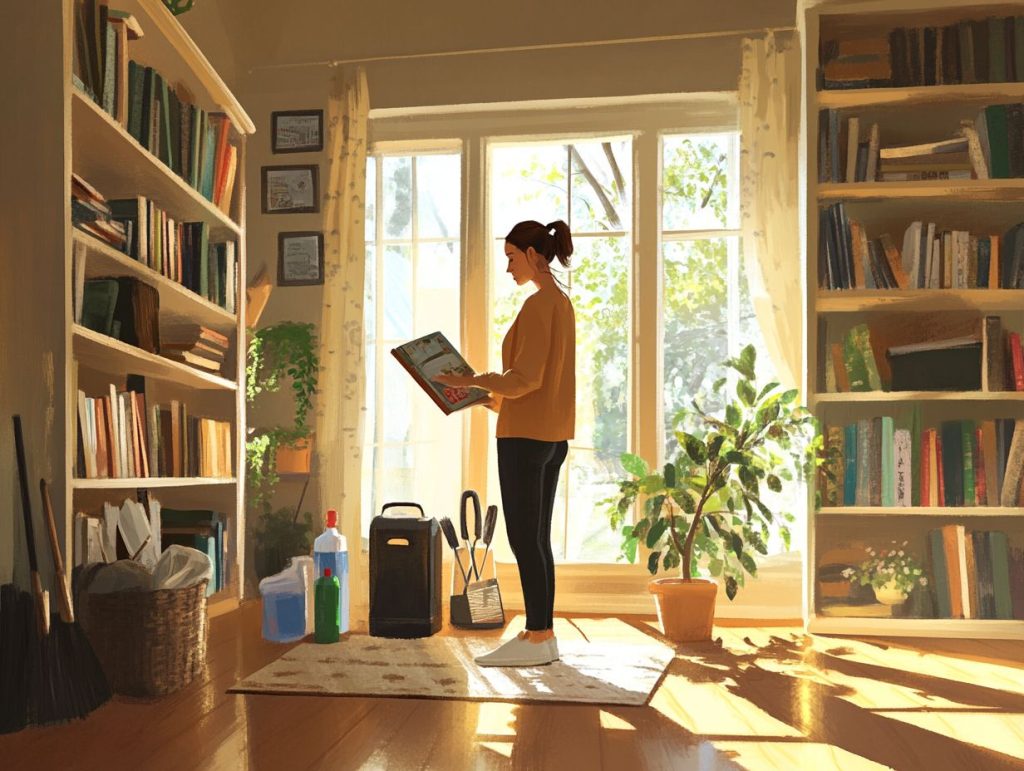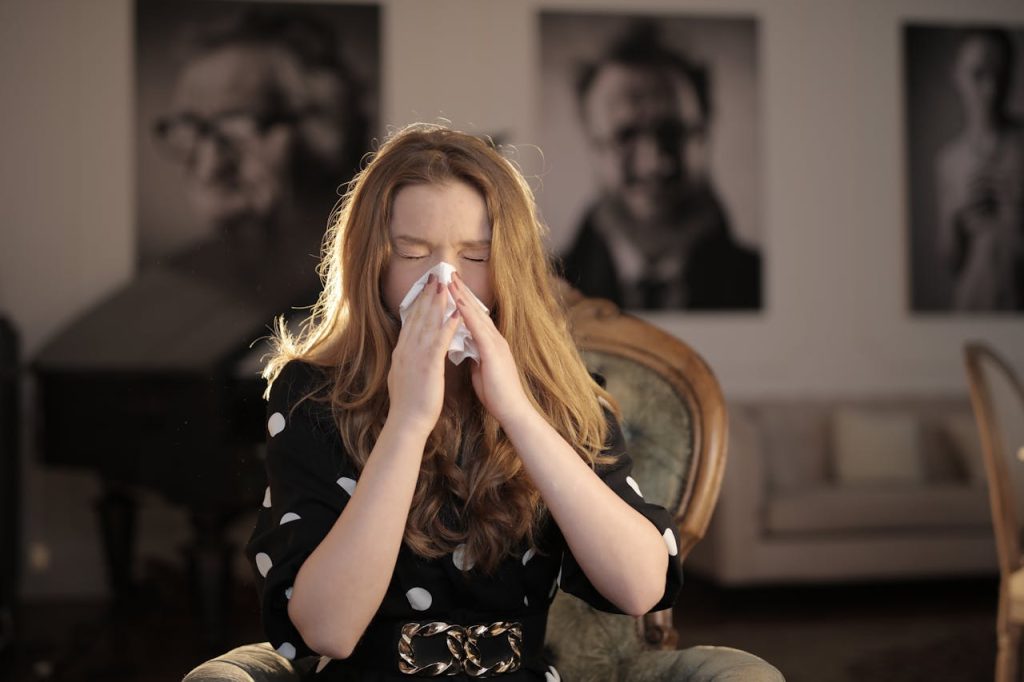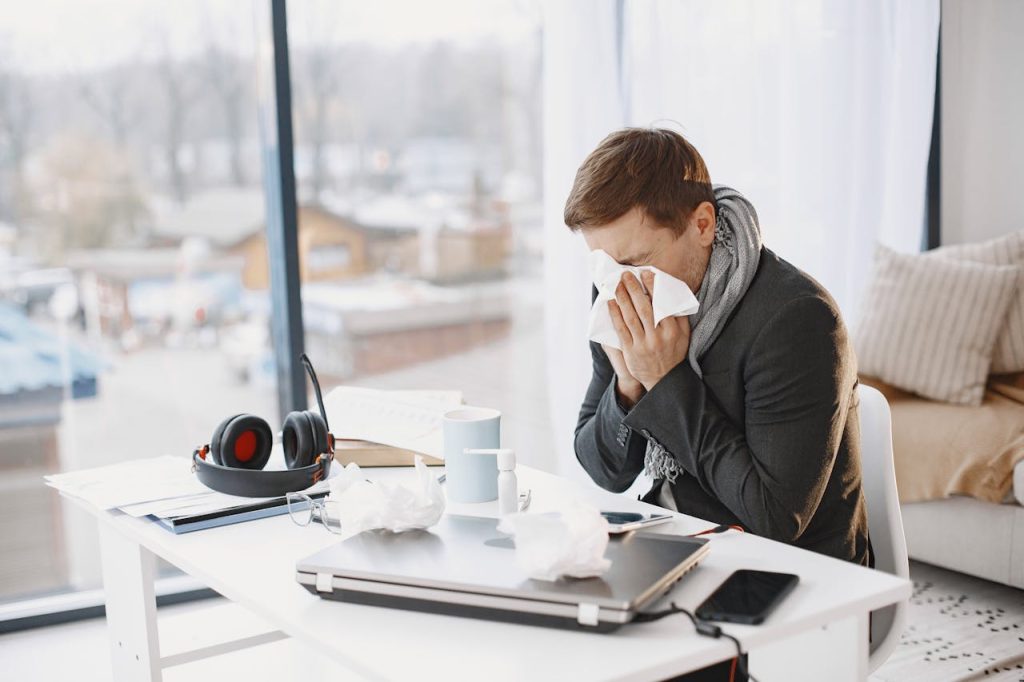Why Cleaning Can Be a Form of Stress Relief
Cleaning might seem mundane, but it holds surprising benefits for physical and mental well-being. The simple act of tidying up can significantly reduce stress, improve health, and enhance mental clarity.
Here are practical tips for making cleaning a mindful and enjoyable routine and alternative stress relief methods. Discover how transforming your space can transform your mind!

The Connection Between Cleaning and Stress
Cleaning your living space isn’t just about keeping things tidy; it’s a great way to cope and can significantly impact your mental health. When you immerse yourself in cleaning, you gain control over your environment, which can help relieve stress and enhance your emotional well-being.
Furthermore, it promotes mindfulness, allowing you to be fully present in the moment. The physical activity involved can even assist in managing anxiety.
In today’s fast-paced world, recognising the link between cleaning and stress is vital to finding balance and improving your overall quality of life.
How Cleaning Can Help Reduce Stress
Cleaning can be a powerful tool for managing stress. It offers not just physical organisation but also an emotional release. When you dive into a cleaning routine, you can turn your chaotic space into a relaxing sanctuary, giving you that wonderful sense of accomplishment and control.
When you take the time to declutter and tidy up, you’re clearing out the physical mess and creating some mental breathing room. Cleaning can help you practise mindfulness, letting you focus on the here and now. These routines can feel almost meditative, allowing you to release anxieties while you sweep away the dust and debris.
There’s something satisfying about a clean space. It boosts your positivity and well-being, making it a vital part of your self-care routine.
Every time you clean, it’s an opportunity to reclaim your environment and find a therapeutic escape from the stresses of daily life.
The Physical and Mental Benefits of Cleaning
Cleaning isn’t just about tidying up; it has many physical and mental benefits that can enhance one’s emotional health and overall well-being.
When you get into the rhythm of cleaning, your focus and productivity soar in your daily tasks. A clean space creates mental clarity and reduces distractions, helping you tackle whatever comes your way.
Improved Physical Health
Regular cleaning boosts physical health by adding essential movement to your daily routine. This helps with energy management and works wonders as a stress reliever.
When you turn those everyday chores into a solid workout, the perks go far beyond having a tidy space. As you sweep, mop, or organise, your body gets stronger and releases endorphins—those lovely little mood lifters that help with mental wellness. The rhythmic scrubbing or rearranging gets your heart pumping, which is excellent for cardiovascular health and gives you that satisfying sense of accomplishment. Plus, organising a clean environment can create a calming space that reduces anxiety and clears your mind.
So, by including cleaning into your daily life, you’re not just tidying up; you’re also nurturing your physical fitness and emotional balance.
Mental Clarity and Focus
Cleaning your space can significantly boost your mental clarity and focus by eliminating distractions and creating a simpler environment. When you declutter, you’re tidying up your physical space, promoting emotional clarity, and enhancing your productivity.
By discarding excess items and organising what you truly need, you can create an atmosphere that inspires concentration and creativity. A streamlined environment helps keep your mind less cluttered, allowing your thoughts to flow freely and effectively. When your surroundings are neat and orderly, you feel more in control and at peace, giving you the energy to tackle tasks with renewed enthusiasm.
In short, embracing simplicity changes your physical workspace, nurtures a clearer emotional state, and makes you considerably more effective in your daily activities.
Tips for Using Cleaning as a Stress Relief Method
Transforming cleaning into a stress relief method takes a bit of intention and mindfulness, but it can boost your emotional well-being. Setting up a structured cleaning routine can turn the whole process into something therapeutic and enjoyable.
Plus, it gives you control over your environment, which is a bonus.
Creating a Cleaning Routine
Establishing a consistent cleaning routine is key to maximising those stress-relieving benefits. It helps you manage your time effectively and develop healthy habits. This structure sharpens your organisational skills and promotes self-discipline in keeping your living space clean and peaceful.
By breaking down tasks into bite-sized segments, you can set aside specific days for different areas of your home, ensuring nothing gets missed. For example, dedicate weekends to a thorough cleaning session or carve out just fifteen minutes each weekday for a quick tidy-up. You’d be surprised how much of a difference that can make.
Using checklists can also give you a nice boost in motivation and keep your progress visible, making you feel accomplished. As you build this routine, it’ll shift from feeling like a chore to becoming a positive habit, ultimately creating a more harmonious environment where self-discipline thrives and your time is used wisely.
Using Cleaning as a Mindful Activity
Focusing on the process and staying present in the moment can transform cleaning into a mindful activity. This approach boosts your emotional well-being and helps you feel more grounded, allowing you to connect deeply with your surroundings.
By embracing mindfulness while tackling those cleaning tasks, you can create a serene atmosphere that promotes relaxation and clarity. Instead of seeing cleaning as just another chore, consider it a meditative experience. This shift not only improves your focus but also encourages a positive mindset.
Engaging fully with each movement—sweeping, dusting, or organising—helps you become more aware of your physical and emotional space. This simple change can lead to a sense of accomplishment and inner peace, turning a routine task into a refreshing ritual that nurtures your environment and mental state.
Alternative Forms of Stress Relief
Cleaning can be a very effective way to relieve stress, but exploring other stress management methods can provide you with even more tools to enhance your emotional health.
By understanding different relaxation techniques, you can find a better balance in your life and improve your overall well-being.
Exploring Other Methods for Stress Management
There are plenty of stress management techniques beyond just cleaning that can help you relax and enhance your emotional well-being. Think breathing exercises, meditation, and good old physical exercise. Each method can be a fantastic addition to your self-care routine, helping you maintain that balance in your life.
Incorporating these practices into your day can seriously improve your life, making it easier to focus and reducing anxiety. For example, engaging in guided imagery during a relaxation session helps clear your mind and gives you a much-needed mental break. Plus, those endorphins kick in when you exercise, giving you a lovely happiness boost.
Even cleaning can be therapeutic! When you pair it with mindful breathing, you can turn those mundane chores into something far more fulfilling. Exploring these complementary techniques strengthens your emotional resilience and creates a calmer environment, helping you cultivate inner peace and tidy space.






